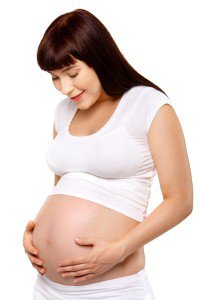If you're getting ready for pregnancy, you might be wondering if you're at a good age to conceive. How will your body respond to a pregnancy? Are you emotionally ready? Can you handle the financial responsibility? These are all valid questions that many mothers ask themselves. Here are a few advantages and disadvantages of having children when you're in your 20s.
The 20s range is the ideal time for getting pregnant and carrying a baby as far as your body is concerned. You were born with a set number of eggs (about one million), and their number and quality declines the older you get (after puberty, there are only 300,000 or so left), making you more likely to have miscarriages, a child with birth defects and experience trouble getting pregnant in the first place. As a young woman, you likely won't have to worry about whether your eggs are plentiful or healthy enough for conceiving. And the fact that you're young means there's less of a chance that you'll have health complications during the pregnancy.
Having a baby in your 20s has other advantages besides the physical ones. For example, you'll probably be better able to handle taking care of a young baby who never seems to sleep, bouncing back the next day with no problem. You should also have plenty of energy to keep up with a toddler and you might even become an active grandparent in the future.
Having said that, there are still downsides to becoming pregnant in your 20s. Being financially stable is a big factor for young mothers, who are often still trying to figure out what they want out of their lives. Between a career, a relationship and personal goals, there's probably a lot that hasn't been figured out yet. You'd have to consider how a baby would affect your life and that of your partner.
